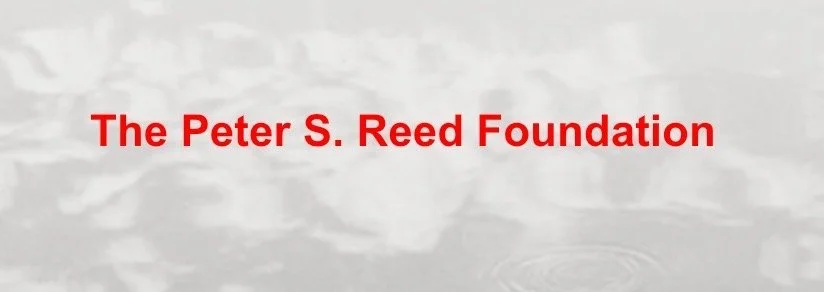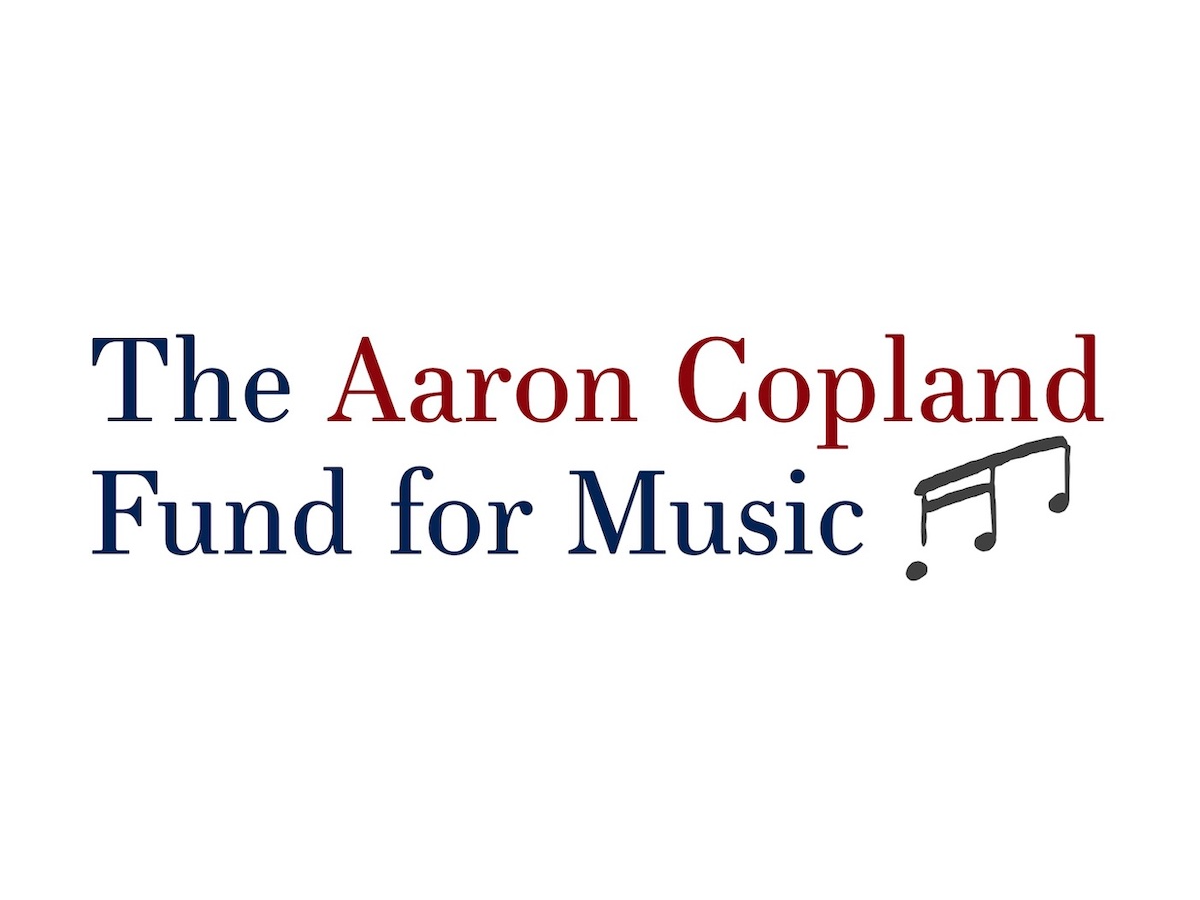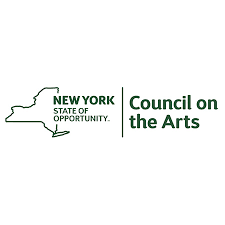Contemporaneous and Hudson River Park Trust present
After the Storm
Wednesday, July 21, 2021 | 7pm
Rain date: Friday, July 23, 2021 | 7pm
Hudson River Park’s Pier 64, New York, NY
Yasmin Williams (arr. Lucy Yao & Yasmin Williams): After the Storm (2021) — world premiere arrangement
Yasmin Williams (arr. Zachary Ritter and Yasmin Williams): Sunshowers (2021) — world premiere arrangement
Yaz Lancaster: Articulated Objects (2021) — world premiere, commissioned by Contemporaneous and the Adele and John Gray Endowment Fund
poetry by Bailey Cohen-Vera
I. Complicit Weapon
II. Dibujo sin papel
III. O dentro é o fora
IV. Peaceful Citizen
V. Cuts, Folds
Yasmin Williams (arr. Ian Gottlieb and Yasmin Williams): Urban Driftwood (2021) — world premiere arrangement
Alex Weiser: and all the days were purple (2017) | און ַאלע טעג ז ַײנען געװען פּורפּורן
I. My Joy (text: Anna Margolin) | מ ַײן גליק
II. **
III. I Was Never Able to Pray (text: Edward Hirsch)
IV. Longing (text: Rachel Korn) | בענקש ַאפֿט
V. Poetry (text: Abraham Sutzkever) | פּ ָאעזיע
VI. Lines of Water (text: Mark Strand)
VII. **
VIII. We Went Through the Days (text: Anna Margolin) | מיר ז ַײנען געג ַאנגען דורך טעג
This program is made possible in part by the New York State Council on the Arts, with the support of Governor Andrew Cuomo, the New York State Legislature, the New York City Department of Cultural Affairs Cultural Development Fund, the Aaron Copland Fund for Music, the Alice M. Ditson Fund at Columbia University, and the Amphion Foundation.
Musicians from Contemporaneous:
Amy Garapic — percussion
Paul Kerekes — piano
Colin Davin — electric guitar
Finnegan Shanahan — violin
Sarah Haines — viola
Amanda Gookin — cello
David Bloom — conductor
Guest Artists:
Elisa Sutherland — voice
Yasmin Williams — guitar, kora
About the Music
Yasmin Williams: After the Storm, Sunshowers, and Urban Driftwood
The three songs played in this program are from my second album Urban Driftwood. All of these songs are somewhat related to the COVID-19 pandemic and how that affected myself and the world in general.
After the Storm is a reflection on how I felt after attending a couple protests in DC during the summer of 2020. The country was going through social and economic turmoil, with the increase in police brutality and social justice failures. I had several questions in my head while writing the song, a few being: What will happen after the problems caused by the pandemic, the government, and everything else begin to subside? What will the nation have learned, if anything? After the Storm symbolizes the hope that we will move towards a brighter future for everyone.
Sunshowers is a reflection on how most people were excited to start the new decade in 2020. The title itself is slightly ominous since a sunshower is the phenomenon of rain falling while the sun is shining.
Urban Driftwood has multiple meanings, the most important being:
As a song title, Urban Driftwood is an allegory of the plight of Black America. It refers to how the culture of the Black community is often imitated in popular culture, but the people behind the culture aren’t as respected as they should be.
As the title of the album, Urban Driftwood refers to me. Being a Black musician, most people assume I am urban or play urban music, which is partly correct since I do consider myself urban. Driftwood refers to my guitar and how it’s made out of a literal piece of driftwood, teredo holed sitka spruce. The title also echoes back to nature being an inspiration for me and my album in general.
— notes by Yasmin Williams
Yasmin Williams is an acoustic fingerstyle guitarist with an unorthodox, modern style of playing. Her music has been commonly described as refreshing, relaxing, and unique and has been called some of the most imaginative guitar music out today. She utilizes various techniques including alternate tunings, percussive hits, and lap tapping in her music to great effect. She has been featured on several radio and television programs including New Sounds Soundcheck podcast, NPR's Weekend Edition, Night Owl, and All Songs Considered, and Woodsongs Old Time Radio Hour along with high profile magazine features such as The New York Times, Acoustic Guitar Magazine, and Vintage Guitar Magazine.
She graduated from New York University with a BM in Music Theory and Composition in December 2017. Her first full album, Unwind, was released in 2018 and has charted highly on several charts, including #1 on iTunes‘s Folk chart and #15 on Billboard's Heatseekers chart. Her second album, Urban Driftwood, was released in 2021 and has received high praise from numerous major publications including Pitchfork, Rolling Stone, The Washington Post, NPR Music, No Depression, Paste Magazine, and other outlets.
Yaz Lancaster: Articulated Objects
This work is inspired by the process, materials, reception and ethos of the artworks belonging to the Sur Moderno: Journeys of Abstraction exhibit held at the MoMA; in conjunction with the poetry of friend, comrade, and artist Bailey Cohen-Vera. The artworks in this show were created by South American artists in the late 20th century who wished to challenge the long-standing conventions of art, and instead wanted to create works that fused “a language of abstraction” with the everyday and modernization. The specific works I selected to respond to and transmute to musical experiences in this piece are works that to me held a richness of visual juxtapositions (delicate vs sharp, crafted vs discarded, foreground/object vs. background/space, etc...). The poetry placed in dialogue with these visual works reckons with cultural identity, family and youthfulness in a highly complicated period in American (and global) history. With titles like Self-Portrait as Orientation in a Peaceful Country and lines like “It’s so much of a blessing/ to find something I do not mind being/ complacent in.” or “During the time of the children/ in cages... Is it/ OK, at a time like this, to be/ in love?” I instantly drew connections with the visual works in Sur Moderno. Through the cycling of distinct gestures and timbres, constellating of genres, and weaving of “strict” and aleatoric notation, it is my hope that this piece highlights the hardened beauty of these artists while pointing to the landscapes of juxtaposition present in our lives.
Acknowledgments
My feelings and relationship with this piece have shifted immensely throughout the duration of my compositional process. I began writing Articulated Objects in early 2020, before the outbreak of Covid-19 in the US, and completed the project over a year later in early 2021, following the largest protest movement in American history. I feel that this piece, along with Bailey’s writing, holds weight in context of this shift, and has created a special capsule of this moment, & of my practice. I am beyond grateful for Bailey’s trust, and I hope that my setting highlights his exceptional treatment of language.
I must also acknowledge writer and comrade Wendy Trevino for her similarly inspiring work that I’ve held close to me for the past year;
tl;dr: you don’t need or want
the people who you know
aren’t “with you” to be
with you. really, you don’t
—Wendy Trevino, from “Revolutionary Letter”
Lastly I’d like to acknowledge guitarist-composer Andrew Noseworthy for his help and patience with the electric guitar part in this piece, especially in III. O dentro é o fora.
— notes by Yaz Lancaster
Text set and/or “charging” each movement
poetry by Bailey Cohen-Vera
I. Complicit Weapon
“I’ll be honest: I know nothing of war”
“I want to appear happy. I want to appear at ease”
“I’m such a complicit weapon”
“America o America I don’t want to bury you/ I want to burden you with my stupid open mouth” “What does it mean to flee from a burning prison only to find yourself in another?”
II. Dibujo sin papel
“It’s been so long since I’ve heard ‘ice’ and just thought ice.”
III. O dentro é o fora (The Inside is the Outside)
During the time of children in cages
I split mindlessness into the soft of my skull
/
Is it OK, at a time like this, to be in love?
IV. Peaceful Citizen
“We didn’t do anything to deserve this world but we did everything to get rid of it.” “You’re in France, you’re in the mountains.”
“I’m such a peaceful citizen.”
V. Cuts, Folds
Folding, folding, folding–
Yaz Lancaster (they/them/theirs) is a Black transdisciplinary artist. They are most interested in practices aligned with relational aesthetics and the everyday; fragments and collage; and anti-oppressive, liberatory politics.
Yaz performs as a violinist, vocalist and steel-pannist in a wide variety of settings including DIY/indie venues, contemporary chamber music, and steel bands. Their work is presented in many different mediums and collaborative projects, and often reckons with specific influences ranging from politics of identity & liberation to natural phenomena and poetics. Most recently, they have been developing the pop/post-genre duo laydøwn with Canadian guitarist-producer Andrew Noseworthy. Yaz has had the privilege and opportunity to build community in the US, Canada, Europe & Trinidad and Tobago—they have created with artists like Andy Akiho, Contact (with Evan Ziporyn), Contemporaneous, George Lewis, JACK Quartet, Leilehua Lanzilotti, Miss Grit, Rohan Chander, Skiffle Steel Orchestra, and Wadada Leo Smith. Their record of commissioned music for violin/voice and electronics AmethYst is forthcoming on people | places | records in 2021.
Yaz holds degrees in violin performance and poetry from New York University where they studied with Cyrus Beroukhim, Robert Honstein & Terrance Hayes (among others). They are the visual arts editor at Peach Mag and a contributing writer at I Care If You Listen. Yaz loves chess, horror movies, and bubble tea.
Alex Weiser: and all the days were purple (2017) | און ַאלע טעג ז ַײנען געװען פּורפּורן
In her poem yorn, Yiddish poet Anna Margolin reflects back on her life, and closes by speaking directly to God ending with the line: “un zukhn dir, nit gloybndik in dir” — “and seeking you, not believing in you.” This poem, along with the remainder poems included in this work, can be understood as kinds of secular prayers. Each deals in some way with the meaning and shape of life, embracing its joy while trying to make sense of its difficulties and transience. Many of my favorite poems are like little talismans or amulets: each a kernel of wisdom that I carry through life because they provide for me something to hold on to in the face of life’s challenges and transience, each poem a way of seeking God without believing in God.
and all the days were purple features a collection of such gems in Yiddish and English from poets Anna Margolin, Edward Hirsch, Rachel Korn, Abraham Sutzkever, and Mark Strand. The cycle is bookended with two songs setting Anna Margolin poems that act as a kind of prelude and postlude. Each Anna Margolin poem reflects on life from the perspective of being after or outside of it. Instrumental sections separate these two songs from the four others, which reflect on life from within its tumult, longing, beauty, and difficulty.
— Alex Weiser
V. Poetry | פּ ָאעזיע
Abraham Sutzkever
Translation by Chana Bloch
A dark violet plum,
the last one on the tree,
thin-skinned and delicate as the pupil of an eye,
that in the dew at night blots out
love, visions, shivering,
and then at the morning star the dew
grows weightless: That
is poetry. Touch it so lightly
that you don't leave a fingerprint.
VI. Lines of Water (text: Mark Strand)
Mark Strand
for Ros Krauss
Tell yourself
as it gets cold and gray falls from the air
that you will go on
walking, hearing
the same tune no matter where
you find yourself—
inside the dome of dark
or under the cracking white
of the moon's gaze in a valley of snow.
Tonight as it gets cold
tell yourself
what you know which is nothing
but the tune your bones play
as you keep going. And you will be able
for once to lie down under the small fire
of winter stars.
And if it happens that you cannot
go on or turn back
and you find yourself
where you will be at the end,
tell yourself
in that final flowing of cold through your limbs
that you love what you are.
VIII. We Went Through the Days | מיר ז ַײנען געג ַאנגען דורך טעג
Anna Margolin
translation by Shirley Kumove
We went through the days as through storm-tossed gardens.
Blossoming, maturing; mastering the game of life and death.
Clouds, vastness, and dreams were in our words.
Among stubborn trees in a rustling summer garden
we fused into a single tree.
Evenings spread their deeply darkened blue,
with the aching desire of winds and falling stars,
with shifting, caressing glow of fluttering leaves and grasses,
we wove ourselves into the wind, merged with the blueness
like happy creatures and clever, playful gods.
I. My Joy | מ ַײן גליק
Anna Margolin
translation by Shirley Kumove
Perhaps this was my happiness:
To feel how your eyes
bowed down before me.
No, rather this was my happiness:
To go silently back and forth
across the square with you.
No, not even that, but listen:
How over our joy
there hovered the smiling face of death.
And all the days were purple,
and all were hard.
III. I Was Never Able to Pray
Edward Hirsch
Wheel me down to the shore
where the lighthouse was abandoned
and the moon tolls in the rafters.
Let me hear the wind paging through the trees
and see the stars flaring out, one by one,
like the forgotten faces of the dead.
I was never able to pray,
but let me inscribe my name
in the book of waves
and then stare into the dome
of a sky that never ends
and see my voice sail into the night.
IV. Longing | בענקש ַאפֿט
Rachel Korn
translation by Ruth Whitman
My dreams are so full of longing
that every morning
my body smells of you -
and on my bitten lip there slowly dries
the only sign of suffering,
a speck of blood.
And the hours like goblets pour hope,
one into the other,
like expensive wine:
that you’re not far away,
that now, at any moment,
you may come, come, come.
Broad gestures and rich textures are hallmarks of the “compelling” (The New York Times), “deliciously wistful” (San Francisco Classical Voice), “personal, expressive, and bold,” (I Care If You Listen) music of composer Alex Weiser. Born and raised in New York City, Weiser creates acutely cosmopolitan music combining a deeply felt historical perspective with a vibrant forward-looking creativity. Weiser’s debut album and all the days were purple, was named a 2020 Pulitzer Prize Finalist for Music. Released by Cantaloupe Music in April 2019, the album includes songs in Yiddish and English and has been praised as “ravishing” (The New Yorker), “reverent and magical... devastatingly beautiful,” (American Record Guide), “gorgeous” (Tablet Magazine), “utterly original and exquisitely unsettling... sweeping, bewitching, divinely dissonant... pitch-perfect.” (In Geveb).
Weiser recently completed an opera with librettist Ben Kaplan called State of the Jews. Hailed as “stunning, heavenly, marvelous” by Israeli National Public Radio, the opera is based on the life of Theodor Herzl and juxtaposes a historical narrative focusing on the last year of his life, with the more intimate story of Theodor’s conflicted relationship with his wife, Julie Herzl, and the toll his political views and activities took on their family life. Developed as a part of a two-year fellowship with American Opera Projects, the LABA fellowship of the 14th Street Y, a Roulette residency, and with support from the ConEd Exploring the Metropolis Composer Residency program, the opera received a series of preview performances at the 14th Street Y in December 2019 and awaits a premiere production.
After the Storm is made possible by the New York State Council on the Arts with the support of Governor Kathy Hochul and the New York State Legislature, and by public funds from The New York City Department of Cultural Affairs, and support from the Aaron Copland Fund for Music, New Music USA, Pacific Harmony Foundation, and the Peter S. Reed Foundation.









